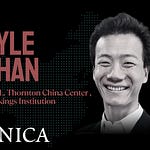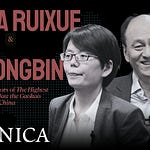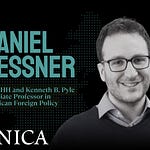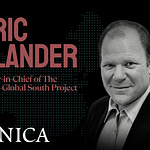This week, we feature the second half of an extensive interview (first part here) with Shelley Rigger, a political scientist at Davidson College and the leading U.S. expert on the politics of Taiwan. This second half of the interview, which covers the history of Taiwan from the 1990s to the present, was conducted by Neysun Mahboubi of the UPenn Center for the Study of Contemporary China Podcast (one of our favorite China podcasts), and is republished here with the Center’s permission. What to listen for on this week’s Sinica Podcast: 3:39: Shelley and Neysun discuss the nature of the relationship between Taiwan and China in the early 1990s, with identify the opponents and proponents of unification with the mainland. Chiang Ching-kuo (蔣經國 Jiǎng Jīng-guó, the son of Chiang Kai-shek, who succeeded his father as premier) allowed for veterans of the Chinese civil war to return to the mainland on humanitarian visits. These veterans were accompanied by their children, who saw economic opportunities on the other side of the Taiwan Strait. Shelley: “They get off the plane, and what Dad sees is, ‘I don’t recognize my hometown.’ What the son or son-in-law sees is, ‘This is perfect for my business.’” 17:55: What is it about Taiwanese independence that makes it such a contentious topic for officials in Beijing? What has been the result of the social, economic, and cultural interactions between Taiwan and the mainland since the 1990s? What role did Taiwanese investment in China play in the ’90s, and what about Chinese investment in Taiwan in the 21st century? Shelley and Neysun, Taiwan and China scholars respectively, talk through these questions. 33:49: Are there red lines in Beijing on the topic of Taiwanese independence? What are the primary points of inflection and contention in the relationship? What effect does a U.S. presence in Taiwan have on the Taiwan-P.R.C. relationship? Shelley explains: “Are we going to remind Beijing that we are in it in that way, and that in some sense the inability to solve this problem [of independence] that they have chosen for themselves is our fault? Are we going to put that right up in their faces, or are we going to say, ‘Taiwan is okay. We’re okay. We don’t need to, as my dad says, kick the skunk.’” 38:51: What about the U.S.-Taiwan relationship under the current U.S. administration? The phone call between Tsai Ing-wen (蔡英文 Cài Yīng-wén) and then president-elect Trump, which was intended to be private, certainly strained the relationship after being picked up by international media and tweets by Trump blaming Taiwan for the ensuing debacle that unfolded. Shelley: “The other thing about this administration that’s especially worrisome from the Taiwan perspective is that it’s very unpredictable, as you said, and so the possibility that Taiwan could be a bargaining chip or introduced into some transaction is ever-present…” 51:58: Taiwanese identity, and its role in the world, has undergone seismic changes throughout its history. Shelley points out that the discussion within the island nation has somewhat settled, but not without certain reservations: “The debate over identity that was raging in Taiwan in the 1990s and 2000s is pretty settled on the idea that, with the exception of the indigenous peoples and the ever-growing number of immigrants to Taiwan, our roots are in China…but that does not need to define us politically, and our community, the community of shared fate or common destiny that we belong to as Taiwanese, is specific to this island…”
This podcast was edited and produced by Kaiser Kuo and Jason MacRonald.
See Privacy Policy at https://art19.com/privacy and California Privacy Notice at https://art19.com/privacy#do-not-sell-my-info.












